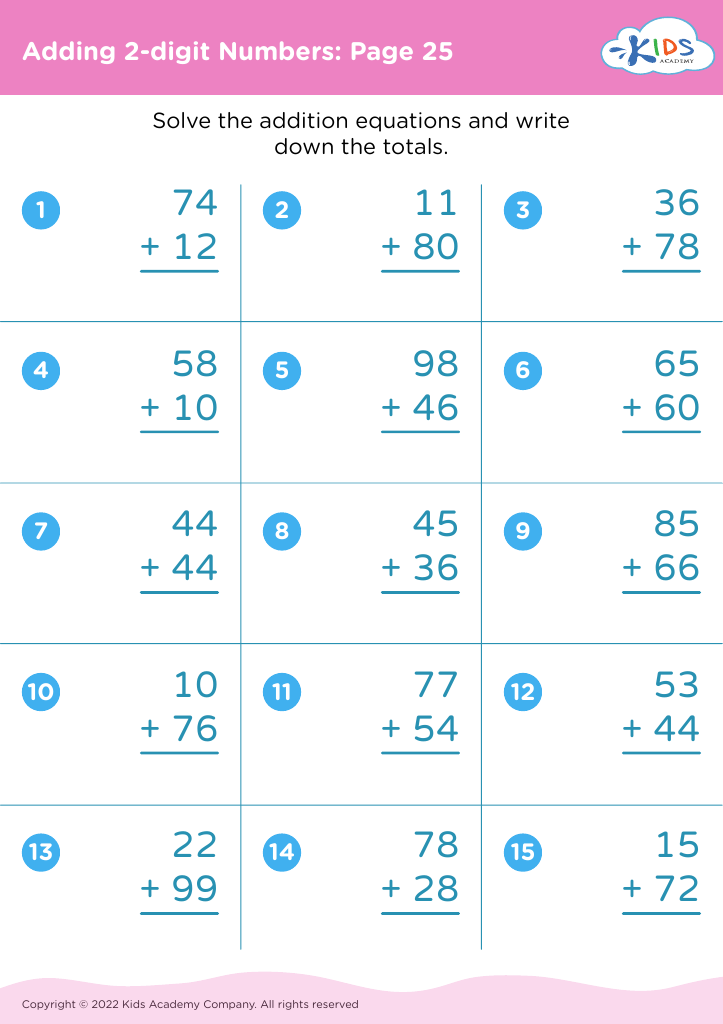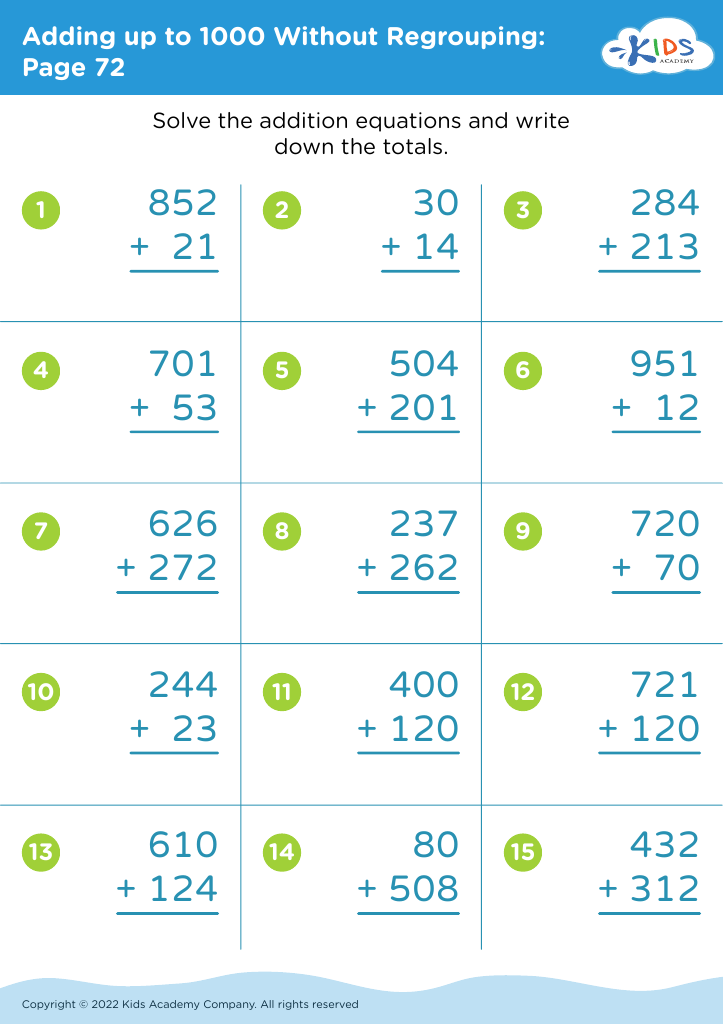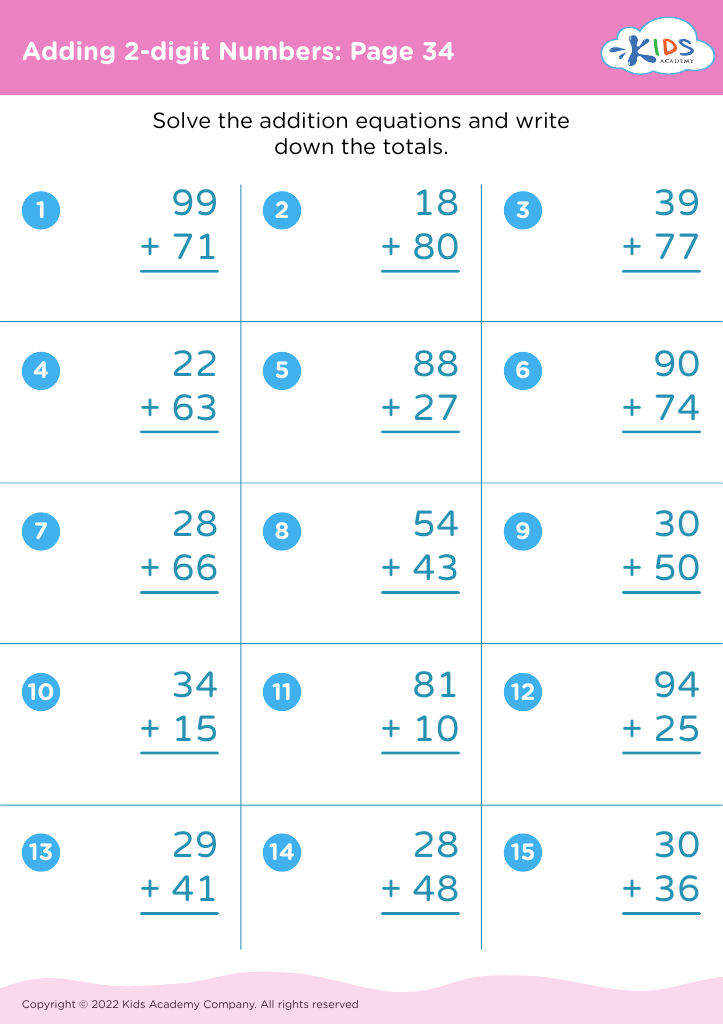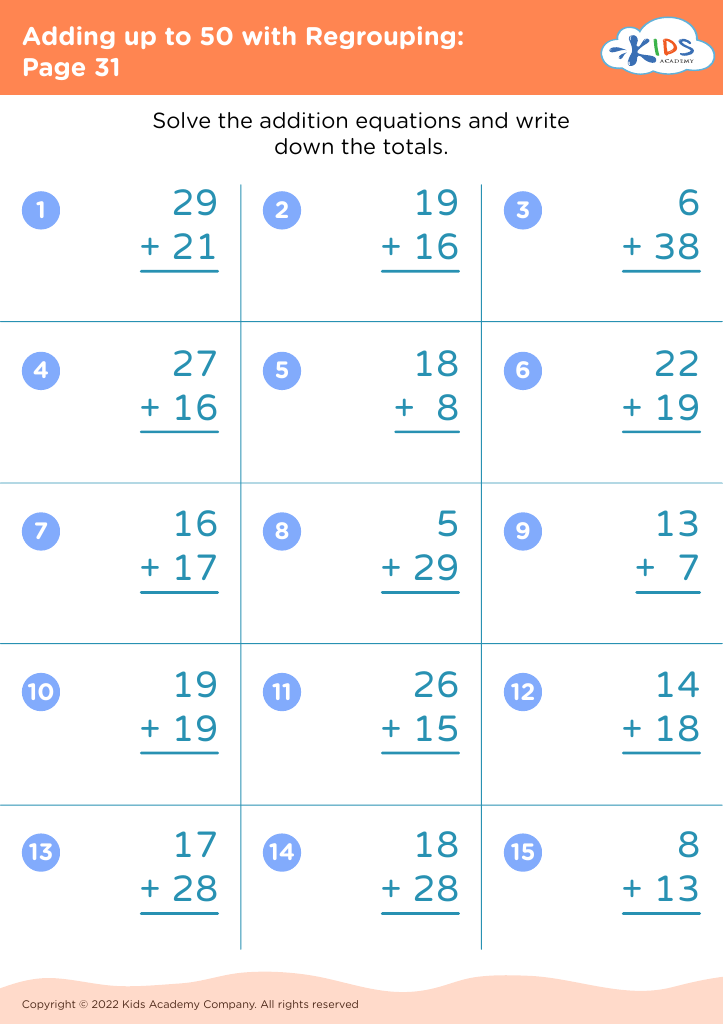Develop logical thinking Worksheets for Ages 3-8
9 filtered results
-
From - To
Boost your child's cognitive development with our "Develop Logical Thinking Worksheets for Ages 3-8." Designed to enhance young minds, these engaging and educational activities sharpen problem-solving skills, reinforce pattern recognition, and nurture critical thinking. Filled with vibrant illustrations and age-appropriate challenges, our worksheets make learning fun while promoting logical reasoning in early learners. Perfect for home or classroom use, these resources offer a structured approach to developing essential cognitive abilities. Help your child build a strong foundation in logical thinking with our expertly crafted worksheets. Visit us today to unlock a world of learning and discovery!
Developing logical thinking in children ages 3-8 is crucial for their cognitive growth and future academic success. At this developmental stage, children’s brains are highly receptive and malleable, making it an ideal period to build foundational skills.
Firstly, logical thinking enhances problem-solving abilities. When children can think logically, they are better equipped to analyze situations, make informed decisions, and overcome challenges effectively. These skills are not only applicable in their academic pursuits but also in day-to-day life interactions and activities.
Secondly, early development of logical thinking fosters strong mathematical and scientific skills. Concepts such as patterns, sequencing, and cause-and-effect relationships are fundamental in both subjects. By nurturing logical thinking, parents and teachers help children grasp these concepts more easily, setting a solid groundwork for future learning.
Moreover, logical thinking promotes strong communication skills. Understanding how to structure thoughts logically enables children to express themselves more clearly and succinctly. This improved clarity of thought and communication benefits their social interactions, leading to better relationships and cooperation with peers.
Lastly, fostering logical thinking in early childhood builds confidence and curiosity. As children grow adept at solving problems and understanding how things work, they become more confident in their abilities and develop a genuine interest in learning.
Investing time and effort in developing logical thinking at this crucial stage lays the foundation for a lifetime of critical thinking, effective problem-solving, and continued academic growth.































